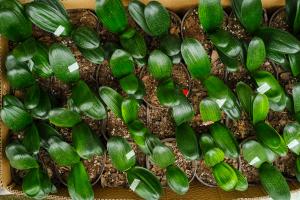When to Plant Sunflower Seeds: A Comprehensive Guide
Introduction
Sunflowers are a vibrant and easy-to-grow addition to any garden. They are widely known for their large, bright yellow heads, which can grow up to a foot in diameter. In addition to their beauty, sunflowers can attract a variety of beneficial insects to your garden, such as bees and butterflies. If you're wondering when to plant sunflower seeds, read on for a comprehensive guide.
Understanding Sunflower Seeds
Sunflower seeds are an annual plant, meaning they complete their life cycle in one growing season. They are typically planted directly in the ground once the risk of frost has passed, in order to ensure that they have enough time to bloom before the first frost of the season.
Choosing the Right Time
The ideal time to plant sunflower seeds really depends on your climate and the average temperature in your region. As a general rule, sunflowers should be planted in the early spring, once the soil has warmed up to at least 50掳F. In cooler climates, this may not occur until mid-April or early May.
Planting Tips
Before planting sunflower seeds, it's important to take a few steps to ensure that they have the best possible chance of thriving. First, choose a location that receives plenty of sunlight throughout the day. Sunflowers need at least six hours of direct sunlight daily in order to grow properly.
Next, prepare the soil by breaking up any clumps and adding a bit of compost or other organic matter. This will help to improve the texture and nutrient content of the soil, which will in turn promote healthy growth.
When planting sunflower seeds, it's important to space them out properly to allow for proper growth. Plant seeds about one inch deep and six inches apart. If planting multiple rows, make sure to space them at least two feet apart in order to allow plenty of room for the plants to grow.
Caring for Sunflowers
Once your sunflowers have been planted, it's important to care for them properly in order to promote optimal growth. This includes watering them regularly, especially during hot and dry weather. Aim to keep the soil evenly moist, but not soggy.
As your sunflowers begin to grow taller, it's important to provide support in the form of stakes or trellises. This will help to prevent them from falling over due to heavy winds or rain.
Finally, be sure to watch out for pests and diseases that can affect sunflowers. Common pests include aphids and caterpillars, while common diseases include powdery mildew and downy mildew. If you notice any signs of these issues, take quick action to address them in order to prevent them from spreading.
Conclusion
In conclusion, planting sunflower seeds is a fairly simple process that can yield beautiful results if done properly. By choosing the right time for planting, caring for your sunflowers properly, and watching out for pests and diseases, you can enjoy this stunning annual plant in your garden all season long.

 how many times do yo...
how many times do yo... how many planted tre...
how many planted tre... how many pine trees ...
how many pine trees ... how many pecan trees...
how many pecan trees... how many plants comp...
how many plants comp... how many plants can ...
how many plants can ... how many plants and ...
how many plants and ... how many pepper plan...
how many pepper plan...





























